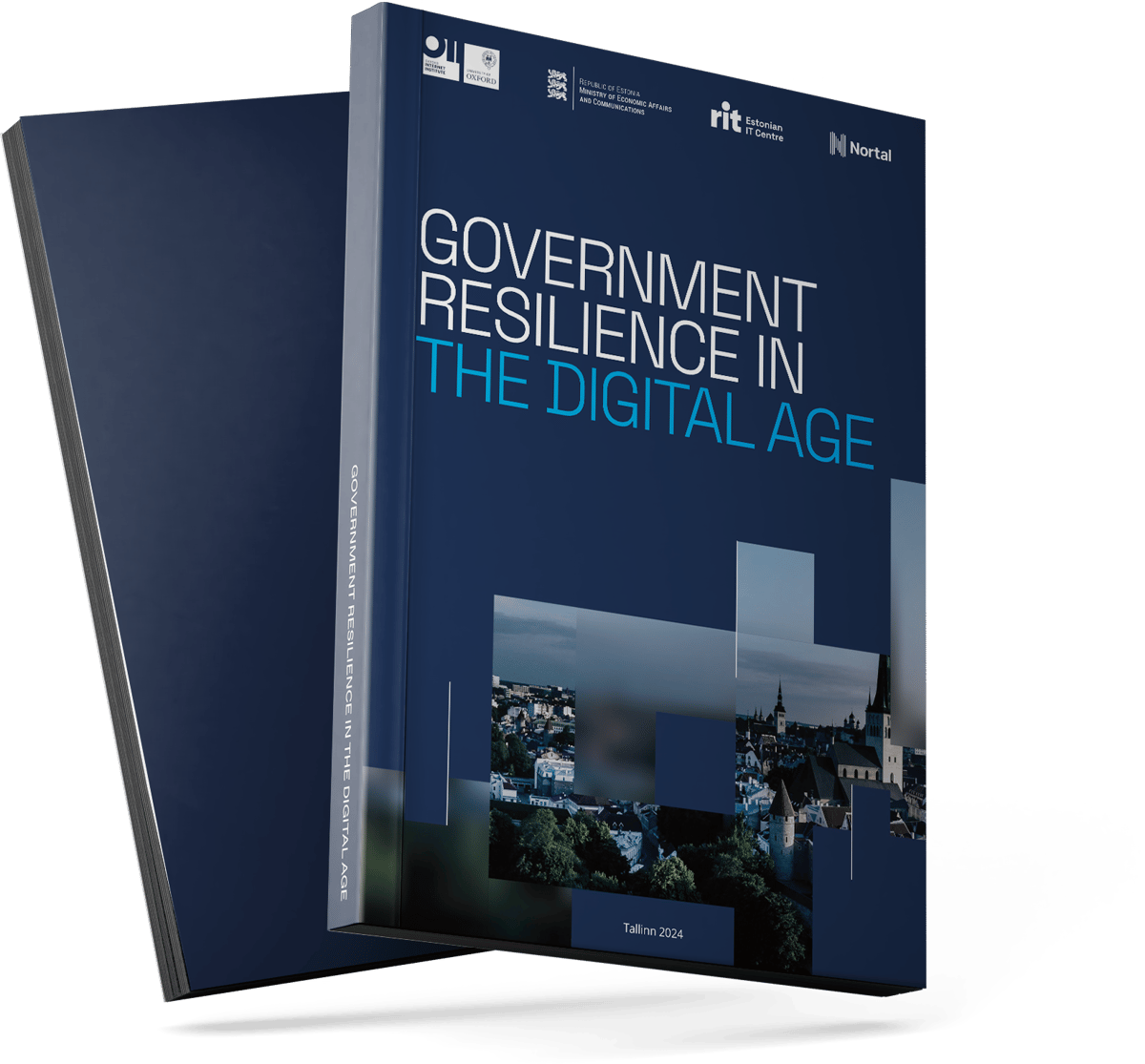Government resilience in the digital age
In a world increasingly defined by crises—from pandemics and climate disasters to escalating wars—governments that fail to build digital resilience risk crumbling under pressure. Our latest white paper argues that without robust digital infrastructure, states are vulnerable to collapse when faced with the next inevitable disruption.
In brief
We are living in times of multiple crises. Pandemics, conflicts, and climate change are testing the resilience of our institutions and democracy. Nearly 30% of governments in Europe had to postpone elections during the COVID-19 pandemic in 2020-2021, highlighting the need for digital continuity of state functions in the face of challenges.
As a result, policymakers are now making large investments into their digital capabilities to ensure the digital continuity of state functions during times of crisis. The future of resilient governance lies in building digital states that can operate and deliver services from anywhere, withstanding threats in both physical and virtual worlds.
This study highlights key policies essential for building resilient digital states.
As states undergo the transformation into new digital states, it is of the utmost importance to think strategically about how to build robust and resilient digital infrastructure. These recommendations, if adopted, will help to ensure that a digital state can function even when facing the worst of crises.
- Digital-first approach to public services and registries related to the continuity of the state.
- Transition to public sector jobs that can operate in a remote-first or remote-enabled manner.
- Prioritizing the security of digital infrastructure and services.
- Resilience in connectivity by viewing internet access as critical infrastructure.
- Reduced opportunities for physical damage to disrupt their digital operations.
- Managed third-party risk without limiting opportunities for technological innovation.
- A whole-of-government approach to developing digital resilience.
Andres Raieste
Senior Vice President of Public Sector at Nortal
As a Senior Vice President at Nortal, a leading global government consulting and tech powerhouse, Andres Raieste is responsible for innovation and growth in the public sector across markets. Andres began his career in Estonia, one of the most digitalized countries in the world, and since then has been responsible for many high-impact, large-scale government transformation programs and reforms globally. He has also (co-)authored white papers and other thought leadership pieces on digitalization and public administration.
Dr. Keegan McBride
Lecturer in AI, Government, and Policy, Oxford Internet Institute
Adjunct Senior Fellow in National Security and Technology, Center for a New American Security
Dr. Keegan McBride is an expert in digital government, AI in the public sector, digital well-being, and government interoperability. His research explores the evolving role of technology in shaping the state in the digital age, with a focus on technology, society, and governance. Keegan also works with NGOs and consults for governments and the private sector on digital transformation. He holds an MSc in e-Governance Technologies and Services and a PhD in public administration from Tallinn University of Technology.
Democratic stability and service continuity during crises
The seven key policies suggested in the study are intended to help build and strengthen the resilience of a state’s digital infrastructure. If built properly, a sufficiently resilient digital state could run its core and critical digital services even if there was a temporary or more long-term loss of its physical territory due to a crisis.
Building and investing in a better, stronger, and more resilient digital future
This report represents a first step in the process of building resilient digital states, challenging the existing conceptualisation of what it means to be a state in today’s digital age. To aid this conceptual exercise, the report identifies several scenarios states may encounter in the decades ahead and explores how digital technologies could be used to overcome them.
Download the full white paper and discover how digital resilience can safeguard your state’s future
This white paper, “Government Resilience in the Digital Age,” was published on 20 November, 2024 during a keynote presentation at the Tallinn Digital Summit by co-authors Andres Raieste, Senior Vice President, Public Sector (Global) at Nortal and Dr Keegan McBride, Lecturer in AI, Government, and Policy at the Oxford Internet Institute. The report draws on insights from experts at the Oxford Internet Institute, Nortal, the Estonian Ministry of Economic Affairs and Communications, and the Estonian IT Centre.

Ready to journey to the Personal Government
Get in touch to learn more about how to build a human-centered government, provide a better public service experience and efficient public administration.

